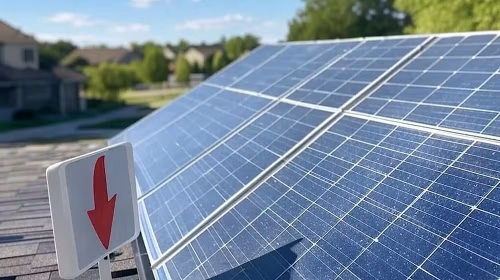The Pakistan Solar Association (PSA) has sounded the alarm over proposed changes to Pakistan’s net metering policy—and the warning couldn’t be more urgent. If approved, the revisions could slash consumer savings by up to 85% and bring rooftop solar growth to a grinding halt.
🔁 What’s Changing in Net Metering?
Under the current unit-for-unit net metering system, solar users can offset every unit they export with the same amount they import, essentially reducing or eliminating their power bills. It’s simple, fair, and has fueled the rooftop solar boom in Pakistan.
But the new proposal? A flat buyback rate of Rs. 10 per unit exported to the grid.
💸 What It Means for Solar Consumers
Let’s break it down:
| Scenario | Current System | Proposed System |
|---|---|---|
| 1,000 units exported | Offsets Rs. 50,000–70,000 (full bill) | Earns only Rs. 10,000 |
| Payback Time | 2–2.5 years | Significantly extended—beyond loan periods |
💥 Savings drop by over 80%!
Small residential systems, in particular, would no longer make financial sense. The incentive to invest in solar would disappear overnight.
🧾 Tax on Sunlight?
Adding to the frustration, the proposal includes an 18% sales tax on solar exports.
That means electricity generated and exported by solar users would be taxed—even if they still import more electricity from the grid. PSA calls this a direct hit on clean energy and a move completely out of sync with global best practices, where solar and renewables are tax-exempt or zero-rated to encourage adoption.
⚠️ Why This Matters Beyond Your Wallet
If implemented, PSA warns the policy will:
- ❌ Undermine Pakistan’s goal of 30% renewable energy by 2030
- ❌ Keep the country reliant on costly capacity payments to IPPs
- ❌ Sustain high electricity tariffs for all consumers
- ❌ Deter future green investments from both local and international stakeholders
✅ PSA’s Recommendations
The Pakistan Solar Association isn’t just criticizing—they’re offering a better path forward. Their key suggestions include:
- 🕐 A minimum one-year transition period to maintain investor confidence
- 🌏 Adopt regional best practices from India and Bangladesh
- 👥 Form a committee of industry experts under the Ministry of Energy and ECC
- 🤝 Engage SAARC and bilateral partners for collaborative energy planning
🌞 Final Thoughts
Solar energy has been one of Pakistan’s few recent success stories in energy innovation. This proposed change threatens to unravel years of progress, just as rooftop solar was becoming accessible and scalable.
📣 It’s time for policymakers to listen—not only to industry experts but also to the thousands of Pakistani households and businesses betting on a cleaner, cheaper future.
🟢 Call to Action
Want to support clean energy in Pakistan?
📢 Share this article, contact your local representatives, or reach out to PSA to show your support for smart solar policy.












